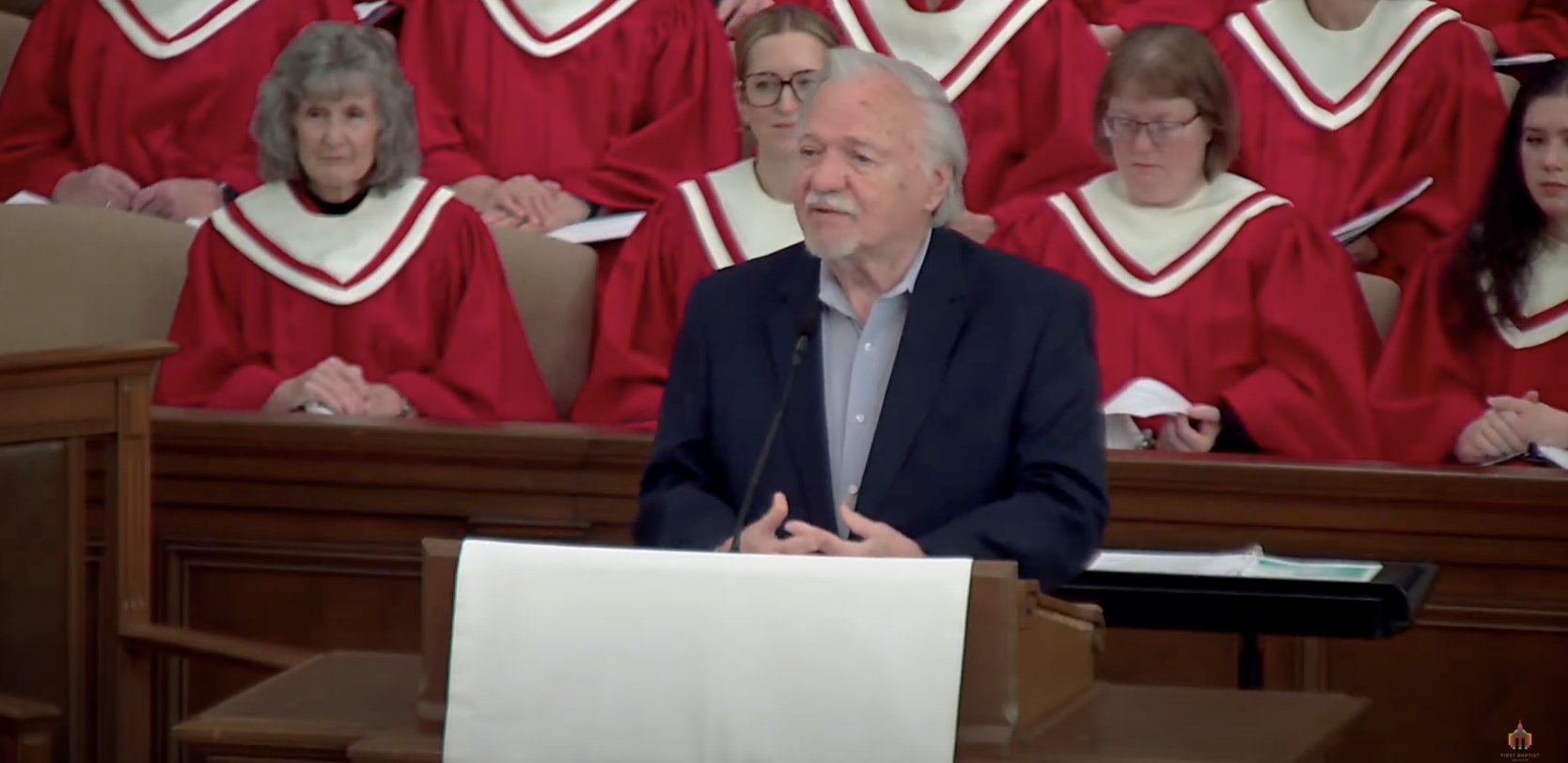
In 1987 the Alliance of Baptists, “An alliance of individuals and churches dedicated to the preservation of historic Baptist principles, freedoms and traditions,” was born. Central to its identity was (and is) a covenant that affirms seven fundamental freedoms, including, “the freedom of the local church under the authority of Jesus Christ to shape its own life and mission, call its own leadership, and ordain whom it perceives as gifted for ministry, male or female.”
A dozen or so years later, Wake Forest Baptist Church exercised its freedom to shape its own life and mission under the authority of Jesus Christ by celebrating a same-sex wedding, though we did not call it a same-sex wedding because in September 2000 – 25 years ago this fall — same-sex marriage was not legal anywhere in the world. The Netherlands became the first country to legalize same-sex marriage the following year. Massachusetts became the first state to do so four years later.
We didn’t know what to call it, so we called it a “union ceremony.” It was not our best moment, creatively speaking. After the ceremony, when Susan and Wendy drove away, across their rear window s0meone had written, “Just united.”
Lynn Rhoades and I were pastors. The congregation at the time included people who have since joined FBC: Steve and Eve Andrews, Phil and Jean Batten, Niki Byers, Edna Green, Ross and Betty Griffith, Judy and Terry Lovelace, Anne Phillips, Paul and Sara Sinal, Gordon Thompson, and the late beloved Don Roberson.
There are other former members of Wake Forest Baptist Church who have joined FBC; I have listed these because they were members at the time of the ceremony.
The point I want to make is that, while there were certainly individuals who exhibited courage and compassion and contributed insight and wisdom, and while there are great individual stories, this is the story of a congregation being Baptist, shaping its own life and mission under the authority of Jesus Christ. At considerable cost, I might add.
Yesterday I ran into one of the participants in the ceremony at the Pride parade and told her that I had been asked to talk about the ceremony. She summed the experience up in three succinct points: “It was hard. It hurt. But we got it done.”
In the days that followed, Wake Forest Baptist Church was sometimes referred to as a forerunner. The problem with being a forerunner is that you never know for sure that you are one. Unless others follow, you might end up like poor John the Baptist, sitting in prison waiting to be executed, wondering, “Did I just make a really big mistake?” It is not always clear when you’re in the messy middle of things.
Somewhere in the messy middle of things, I recalled something one of our deacons said in a deacons meeting: “Our problem is that we believe that we can do what God is calling us to do and not pay a price for it. It’s time we realized there is a cost to being a disciple of Jesus Christ.”
With that comment in mind, I concluded my sermon the following Sunday:
Let us dedicate ourselves to discerning and doing the will of God. Not because it will increase our membership, not because it will help us meet our budget, and not because it will give us some good publicity. Let us do the will of God because it is the will of God. And if there’s a price to be paid, let us pay it, knowing that some of our brothers and sisters in Christ have paid and are paying a far greater price.
At my retirement dinner, I said that I drew as much satisfaction from the events of September 9, 2000 as from anything in my 40 years as a minister, and, more, well, pride.
It was my privilege to serve with this remarkable congregation of Baptist Christians.

